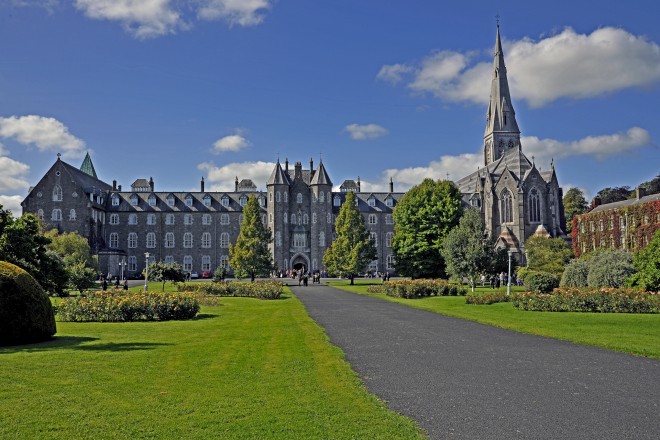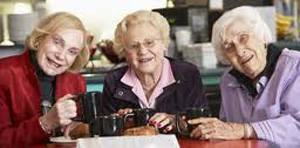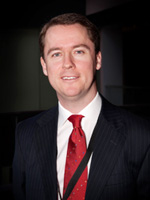RADIO VATICANA
REPORT/IMAGE: Our ability to recognize the Risen Lord through His Word and in
the Eucharist was the focus of Pope Benedict XVI’s Regina Caeli reflections this
third Sunday of Easter. Speaking in French he said in the same way the Risen
Jesus appeared among the apostles, still today "the Savior assures us of his
real presence among us through the Word and the Eucharist" and just as "He gave
peace "to the disciples, "He is still gifting us His peace and opens up life to
happiness and invites us to become His witnesses to the ends of the earth, in
our world marked by evil and suffering, pain and fear”.
St Peter’s Square, below the Pope’s study window was packed, mainly with young children from parishes across the diocese of Rome, who are preparing for their First Communion. They had gathered beneath his balcony early Sunday morning, animating the build up to the midday appointment with the Holy Father with song, adding splashes of color to square with bunches of balloons. And they were not disappointed. Speaking to them directly before the recitation of the Regina Caeli, which replaces the Angelus during the period between Easter and Pentecost, Pope Benedict urged "parish priests, parents and catechists to prepare this feast of faith, with great fervor, but with sobriety." This day is to be memorable as the moment when ... you too understand the importance of a personal encounter with Jesus".
Referring to the Sunday Gospel, Luke chapter 24, Pope Benedict said “the Saviour assures us of his real presence among us through the Word and the Eucharist. Therefore, just as the disciples of Emmaus recognized Jesus in the breaking of the bread (cf. Lk 24:35), so we meet the Lord in the Eucharistic celebration”. Quoting St. Thomas Aquinas he said " It is absolutely necessary to confess according to Catholic faith that the entire Christ is in this sacrament.... since the Godhead never set aside the assumed body".
Finally the Pope prayed that the Mother of God help us to listen attentively to the Word of the Lord and participate worthily in the Eucharistic Sacrifice,” to become witnesses of the new humanity”.
Below a Vatican Radio translation of Pope Benedict XVI’s Regina Caeli reflections on the third Sunday of Easter:
Dear brothers and sisters!
Today, the third Sunday of Easter, in the Gospel according to Luke, we meet the risen Jesus who comes in the midst of the disciples (cf. Lk 24.36), who were incredulous and frightened, thinking they saw a ghost (cf. Lk 24, 37). Romano Guardini writes: "The Lord has changed. He does not live as before. His existence ... it is not understandable. Yet it is corporal, including ... his whole life experience, his lived destiny, his passion and his death. Everything is real. Albeit changed, but always tangible reality "(The Lord. Meditations on the person and the life of Our Lord Jesus Christ, Milan 1949, 433). Since the resurrection has not erased the marks of crucifixion, Jesus shows his hands and feet to the Apostles. And to convince them, he even asking for something to eat. So the disciples' offered him a piece of baked fish, and he took it and ate it before them "(Luke 24.42-43). St. Gregory the Great says that "the fish grilled over a fire does not mean anything other than the passion of Jesus Mediator between God and men. In fact, he deigned to hide in the waters of the human race, agreed to be caught in the snare of our death and was as if he were set on fire for the pain suffered at the time of His Passion "(Hom. in Evang. XXIV, 5: CCL 141 , Turnhout 1999, 201).
Thanks to these signs very realistic, the disciples overcome their initial doubt and open up to the gift of faith, and this faith allows them to understand the things written on Christ "in the law of Moses, the Prophets and the Psalms" (Luke 24.44 ). We read that Jesus "opened their minds to understand the Scriptures and said to them:" Thus it is written that the Christ would suffer, and rise from the dead on the third day. and that repentance, for the forgiveness of sins…You are witnesses of these things"(Luke 24.45-48). The Saviour assures us of his real presence among us through the Word and the Eucharist. Therefore, just as the disciples of Emmaus recognized Jesus in the breaking of the bread (cf. Lk 24:35), so we meet the Lord in the Eucharistic celebration. In this regard, St. Thomas Aquinas explains that " It is absolutely necessary to confess according to Catholic faith that the entire Christ is in this sacrament.... since the Godhead never set aside the assumed body," (S.Th. III q. 76, a. 1).
Dear friends, the Church at Easter time, usually administers First Communion to children. I therefore urge the pastors, parents and catechists to prepare this feast of faith well, with great fervor, but also with simplicity. "This day is to be memorable as the moment when ... you too understand the importance of a personal encounter with Jesus" (Post Synodal ap.exort. Sacramentum Caritatis, 19). May the Mother of God help us to listen attentively to the Word of the Lord and participate worthily in the Eucharistic Sacrifice, to become witnesses of the new humanity.
I am pleased to greet all the English-speaking visitors and pilgrims present for this Easter prayer to Our Lady. In today’s Gospel, the risen Lord opens the minds of the disciples to the meaning of his suffering and death, and sends them out to preach repentance. With courage and joy, may we too be authentic witnesses to Christ. God bless all of you! http://www.radiovaticana.org/en1/Articolo.asp?c=581974
St Peter’s Square, below the Pope’s study window was packed, mainly with young children from parishes across the diocese of Rome, who are preparing for their First Communion. They had gathered beneath his balcony early Sunday morning, animating the build up to the midday appointment with the Holy Father with song, adding splashes of color to square with bunches of balloons. And they were not disappointed. Speaking to them directly before the recitation of the Regina Caeli, which replaces the Angelus during the period between Easter and Pentecost, Pope Benedict urged "parish priests, parents and catechists to prepare this feast of faith, with great fervor, but with sobriety." This day is to be memorable as the moment when ... you too understand the importance of a personal encounter with Jesus".
Referring to the Sunday Gospel, Luke chapter 24, Pope Benedict said “the Saviour assures us of his real presence among us through the Word and the Eucharist. Therefore, just as the disciples of Emmaus recognized Jesus in the breaking of the bread (cf. Lk 24:35), so we meet the Lord in the Eucharistic celebration”. Quoting St. Thomas Aquinas he said " It is absolutely necessary to confess according to Catholic faith that the entire Christ is in this sacrament.... since the Godhead never set aside the assumed body".
Finally the Pope prayed that the Mother of God help us to listen attentively to the Word of the Lord and participate worthily in the Eucharistic Sacrifice,” to become witnesses of the new humanity”.
Below a Vatican Radio translation of Pope Benedict XVI’s Regina Caeli reflections on the third Sunday of Easter:
Dear brothers and sisters!
Today, the third Sunday of Easter, in the Gospel according to Luke, we meet the risen Jesus who comes in the midst of the disciples (cf. Lk 24.36), who were incredulous and frightened, thinking they saw a ghost (cf. Lk 24, 37). Romano Guardini writes: "The Lord has changed. He does not live as before. His existence ... it is not understandable. Yet it is corporal, including ... his whole life experience, his lived destiny, his passion and his death. Everything is real. Albeit changed, but always tangible reality "(The Lord. Meditations on the person and the life of Our Lord Jesus Christ, Milan 1949, 433). Since the resurrection has not erased the marks of crucifixion, Jesus shows his hands and feet to the Apostles. And to convince them, he even asking for something to eat. So the disciples' offered him a piece of baked fish, and he took it and ate it before them "(Luke 24.42-43). St. Gregory the Great says that "the fish grilled over a fire does not mean anything other than the passion of Jesus Mediator between God and men. In fact, he deigned to hide in the waters of the human race, agreed to be caught in the snare of our death and was as if he were set on fire for the pain suffered at the time of His Passion "(Hom. in Evang. XXIV, 5: CCL 141 , Turnhout 1999, 201).
Thanks to these signs very realistic, the disciples overcome their initial doubt and open up to the gift of faith, and this faith allows them to understand the things written on Christ "in the law of Moses, the Prophets and the Psalms" (Luke 24.44 ). We read that Jesus "opened their minds to understand the Scriptures and said to them:" Thus it is written that the Christ would suffer, and rise from the dead on the third day. and that repentance, for the forgiveness of sins…You are witnesses of these things"(Luke 24.45-48). The Saviour assures us of his real presence among us through the Word and the Eucharist. Therefore, just as the disciples of Emmaus recognized Jesus in the breaking of the bread (cf. Lk 24:35), so we meet the Lord in the Eucharistic celebration. In this regard, St. Thomas Aquinas explains that " It is absolutely necessary to confess according to Catholic faith that the entire Christ is in this sacrament.... since the Godhead never set aside the assumed body," (S.Th. III q. 76, a. 1).
Dear friends, the Church at Easter time, usually administers First Communion to children. I therefore urge the pastors, parents and catechists to prepare this feast of faith well, with great fervor, but also with simplicity. "This day is to be memorable as the moment when ... you too understand the importance of a personal encounter with Jesus" (Post Synodal ap.exort. Sacramentum Caritatis, 19). May the Mother of God help us to listen attentively to the Word of the Lord and participate worthily in the Eucharistic Sacrifice, to become witnesses of the new humanity.
I am pleased to greet all the English-speaking visitors and pilgrims present for this Easter prayer to Our Lady. In today’s Gospel, the risen Lord opens the minds of the disciples to the meaning of his suffering and death, and sends them out to preach repentance. With courage and joy, may we too be authentic witnesses to Christ. God bless all of you! http://www.radiovaticana.org/en1/Articolo.asp?c=581974
AMERICA : RIP CHARLES COLSON - CHRISTIAN CONVERT OF NIXON SCANDAL
Charles Colson died at 3:12 p.m. on Saturday, April 21,
2012 from complications resulting from a brain hemorrhage. Colson was 80; he was
born on October 16, 1931. He was born in Boston, Massachusetts to Inez (Ducrow)
and Wendel Ball Colson. (Image source: Google.com) His descendants were British
and Swedish. Charles was part of special council to President Nixon from
1969-1973. He was known as "Chuck” Colson. Charles was indicted in the
Watergate scandel in 1974. He emerged as a Christian leader. The Prison
Fellowship and Colson Center for Christian Worldview were 2 organizations he
founded.
Mr. Colson led the world’s largest outreach to prisoners,
ex-prisoners and their families, and the Colson Center, which employed Christian
worldview.
Colson graduated from Brown University and obtained a law
degree from George Washington University. He was a captain in the U.S. Marine.
He was married to Nancy Billings (1953-1964) and Patricia Ann Hughes in 1964.
Colson had 3 children Wendell Ball II (1954), Christian Billings (1956) and
Emily Ann (1958).Colson converted to Christianity after reading the book, "Mere
Christianity" by C.S. Lewis. He received 15 honorary doctorates.
He repented of his sins during the Watergate scandel opening
admitting his faults. Due to his involment he had to serve seven months in
prison in Alabama.
Colson has written over 30 books with more than 5 million
copies sold. Colson once said:
"I live everyday to the fullest because I live it for
Christ," he said of his purpose. "And no matter what I do today ... I'm going to
do something to advance the kingdom of God."
ASIA : INDIA : RIP FR JACOB SRAMPICKAL JESUIT AGE 62
 RADIOVATICAN REPORT: Jesuit Fr Jacob Srampickal, a
prophetic voice for Catholic communications in India, has died at the age of
62.
RADIOVATICAN REPORT: Jesuit Fr Jacob Srampickal, a
prophetic voice for Catholic communications in India, has died at the age of
62.A former head of the communications department at the Pontifical Gregorian University, Fr Jacob had recently been appointed by the Indian bishops’ conference as head of their National Institute for Social Communications, Research and Training, an institute he helped to found in Uttar Pradesh state.
After studies in Development Communication in the northern English city of Leeds, Fr Jacob went on to serve as head of both the Indian and the Asian office of Signis, the international association for Catholic communications. A prolific author and tireless teacher in seminaries across India, Fr Jacob was renowned for his visionary ideas that included online media training for students in developing countries and the New Delhi Video Festival for NGOs.
During his time in Rome, he also worked closely with Vatican Radio’s Indian programme – among those who knew him well is Fr William Nellikkal of the Radio’s Malayalam section.
SOURCE: RADIO VATICANA
AUSTRALIA : VOCATIONS WEBSITE LAUNCH
ARCHDIOCESE OF MELBOURNE RELEASE:
 Friday 20 April 2012 Friday 20 April 2012“Vocations are everyone’s business”, said Archbishop Denis Hart when he launched the Vocations new DVD/Resource Kit and Website on Thursday evening, 19 April at the Cardinal Knox Centre. Archbishop Hart went on to say how pleasing it was to see so many people present to support the work of the Catholic Vocations Office.  Over 100 representatives from Religious communities, the regional
seminary, Archdiocesan agencies, young people from youth Holy Hour and those who
had contributed to the film Catholic Vocations, the Gift of God’s
Love attended the launch. Over 100 representatives from Religious communities, the regional
seminary, Archdiocesan agencies, young people from youth Holy Hour and those who
had contributed to the film Catholic Vocations, the Gift of God’s
Love attended the launch.View gallery Fr Binh Le, Director of Vocations paid special thanks to the Director of the Catholic Education Office, represented at the launch by Mr John McInerney, who through an annual grant to Catholic Vocations was instrumental in this resource being developed for use in schools. He also thanked Dave Collins and Madeleine Clements who did the film/editing of the DVD and Jeremy Yuen from Catholic Communications who designed the Resource Kit and website. View the website and DVD at www.cam.org.au/vocations The Resource Kit introduces young people to the Christian Vocations of single life, marriage, consecrated life and ordained ministry (priesthood and permanent diaconate). The kit includes a workbook and DVD, and provides an introduction to the concept of vocations. It seeks to raise awareness of:
At the laucnh, Vocations Special Projects Officer Jonathon Zarb described how the DVD/resource kit can be used in schools and youth groups. Office Manager Joan Clements presented the new website, briefly going through the great range of information that is available. http://www.cam.org.au/melbourne-news/vocations-resource-and-website-launch.html |
AFRICA : GUINEA BISSAU : AGREEMENT ON TRANSITION WITH COUP LEADERS
Agenzia Fides REPORT– Since Tuesday, April 17 the
Catholic radio station in Guinea Bissau, Radio Sol Mansi, was allowed to resume
broadcasting. "The military junta authorized private radio stations, including
ours, to continue broadcasting," says to Fides the director of Radio Sol Mansi,
Fr. David Sciocco, PIME missionary, who has been living and working in Guinea
Bissau for years.
The crisis erupted after the military coup on April 12 does not seem easy to solve. "At the moment there seems to be no danger of the outbreak of violence, but the political situation is more complicated," says the missionary. On April 19 representatives of 25 political parties signed an agreement with the coup leaders to establish a transition period of two years. The Parliament was dissolved, the Prime Minister and the government were dismissed and a "National Council of Transition," was quickly named which, as first act, appointed President of transition Manuel Serifo Nhamadj. This procedure, however, was deemed unconstitutional by the ECOWAS (the community of West African States), which previously had signed with the military coup another type of agreement.
"The majority of the population is against the agreement on the transition. Yesterday, the military gathered the religious leaders (including the Bishop of Bissau) and representatives of civil society, asking them to sensitize the population they they understand the reasons for the coup. But people are not able to understand them. So a total disconnection between the military and politicians on one side and the people on the other side has been created," said Fr. Sciocco.
Meanwhile, the community of Lusophone countries, which Guinea Bissau belongs to, has asked the UN Security Council to send a force in the Country for the maintenance of peace and the adoption of measures, including international sanctions , "to restore constitutional order" and allow the release of political leaders (including the Prime Minister) arrested by the coup leaders. (L.M.) (Agenzia Fides 20/4/2012)
The crisis erupted after the military coup on April 12 does not seem easy to solve. "At the moment there seems to be no danger of the outbreak of violence, but the political situation is more complicated," says the missionary. On April 19 representatives of 25 political parties signed an agreement with the coup leaders to establish a transition period of two years. The Parliament was dissolved, the Prime Minister and the government were dismissed and a "National Council of Transition," was quickly named which, as first act, appointed President of transition Manuel Serifo Nhamadj. This procedure, however, was deemed unconstitutional by the ECOWAS (the community of West African States), which previously had signed with the military coup another type of agreement.
"The majority of the population is against the agreement on the transition. Yesterday, the military gathered the religious leaders (including the Bishop of Bissau) and representatives of civil society, asking them to sensitize the population they they understand the reasons for the coup. But people are not able to understand them. So a total disconnection between the military and politicians on one side and the people on the other side has been created," said Fr. Sciocco.
Meanwhile, the community of Lusophone countries, which Guinea Bissau belongs to, has asked the UN Security Council to send a force in the Country for the maintenance of peace and the adoption of measures, including international sanctions , "to restore constitutional order" and allow the release of political leaders (including the Prime Minister) arrested by the coup leaders. (L.M.) (Agenzia Fides 20/4/2012)
TODAY'S MASS ONLINE 3RD SUNDAY EASTER APRIL 22, 2012
Apr 22, 2012 - 3rd Sun Easter
| Acts
3: 13 - 15, 17 - 19
| |||||||||||||||||||||||||||||||||||||||||||||||||||
| 13 | The God of Abraham and of Isaac and of Jacob, the God of our fathers, glorified his servant Jesus, whom you delivered up and denied in the presence of Pilate, when he had decided to release him. | ||||||||||||||||||||||||||||||||||||||||||||||||||
| 14 | But you denied the Holy and Righteous One, and asked for a murderer to be granted to you, | ||||||||||||||||||||||||||||||||||||||||||||||||||
| 15 | and killed the Author of life, whom God raised from the dead. To this we are witnesses. | ||||||||||||||||||||||||||||||||||||||||||||||||||
| 17 | "And now, brethren, I know that you acted in ignorance, as did also your rulers. | ||||||||||||||||||||||||||||||||||||||||||||||||||
| 18 | But what God foretold by the mouth of all the prophets, that his Christ should suffer, he thus fulfilled. | ||||||||||||||||||||||||||||||||||||||||||||||||||
| 19 | Repent therefore, and turn
again, that your sins may be blotted out, that times of refreshing may come from
the presence of the Lord,
| ||||||||||||||||||||||||||||||||||||||||||||||||||
TODAY'S SAINT : APRIL 22 : ST. OPPORTUNA
St. Opportuna
VIRGIN AND ABBESS
Feast: April 22
|
Information:
|
|
Virgin and abbess of Montreuil, three miles from Seez, an
episcopal see in Normandy, of which her brother, St. Chrodegang, was bishop.
This holy prelate, returning from a pilgrimage of devotion which he had made to
Rome and other holy places, went to pay a visit to his cousin, St. Lantildis,
abbess of Almanesches, in his diocese; but was murdered in the way, at Normant,
on the 3d of September, 769, by the contrivance of Chrodobert, a powerful
relation, to whom he had intrusted the administration of his temporalities
during his absence. He is honored in the Breviary of Seez on the day of his
death: his head is enshrined in the abbey of St. Martin in the Fields, at Paris,
and his body in the priory of Isle-Adam upon the Oise, near Pontoise. St.
Opportuna did not long survive him, dying in 770, on the 22d of April, having
lived an accomplished model of humility, obedience, mortification, and prayer.
Her relics were carried from Seez during the incursions of the Normans, in the
reign of Charles the Bald, to the priory of Moussy, between Paris and Senlis, in
1009: and some time after to Senlis. In the reign of Charles V., in 1374, her
right arm was translated to Paris with great devotion and pomp, and deposited in
the church which was built in her honor, in the reign of Charles the Bald, to
receive a former portion of her relics then brought from Moussy. It was then a
small church, built at the entrance of a wood, near a hermitage, called before,
Notre Dames des Bois Paris. The town being since extended much beyond this
church, it was made parochial and a collegiate of canons. Great part of the head
of St. Opportuna remains at Moussy; her left arm, with part of her skull, at
Almenesches: one jaw in the priory of St. Chrodegang, at l'Isle-Adam, and a rib,
with her right arm, in her church at Paris. In processions, when the shrine of
St. Genevieve is taken down, and carried, the ancient portion of the relics of
St. Opportuna, kept in a large shrine, is also carried next the shrine of St.
Honoratus. She is commemorated in the Paris Breviary, and is the titular saint
of a parish in that city.
|
source: http://www.ewtn.com/saintsHoly/saints/O/stopportuna.asp#ixzz1snWan7iX
Subscribe to: Posts (Atom)


 On Wednesday 9 May, the
On Wednesday 9 May, the 







_0420_-_Musica.jpg)
